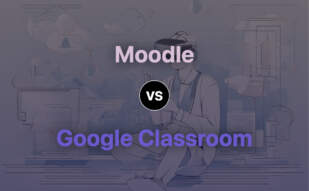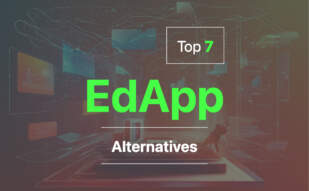Google Classroom is a cloud-based learning management system that allows academic institutions to create online classrooms for sharing materials, tracking student progress, and facilitating communication between teachers and students. While it offers basic tools for online teaching, it lacks certain advanced features found in traditional LMS platforms.

When seeking alternatives to Google Classroom, options include Canvas, Moodle, Schoology, Blackboard, and Thinkific.
Canvas
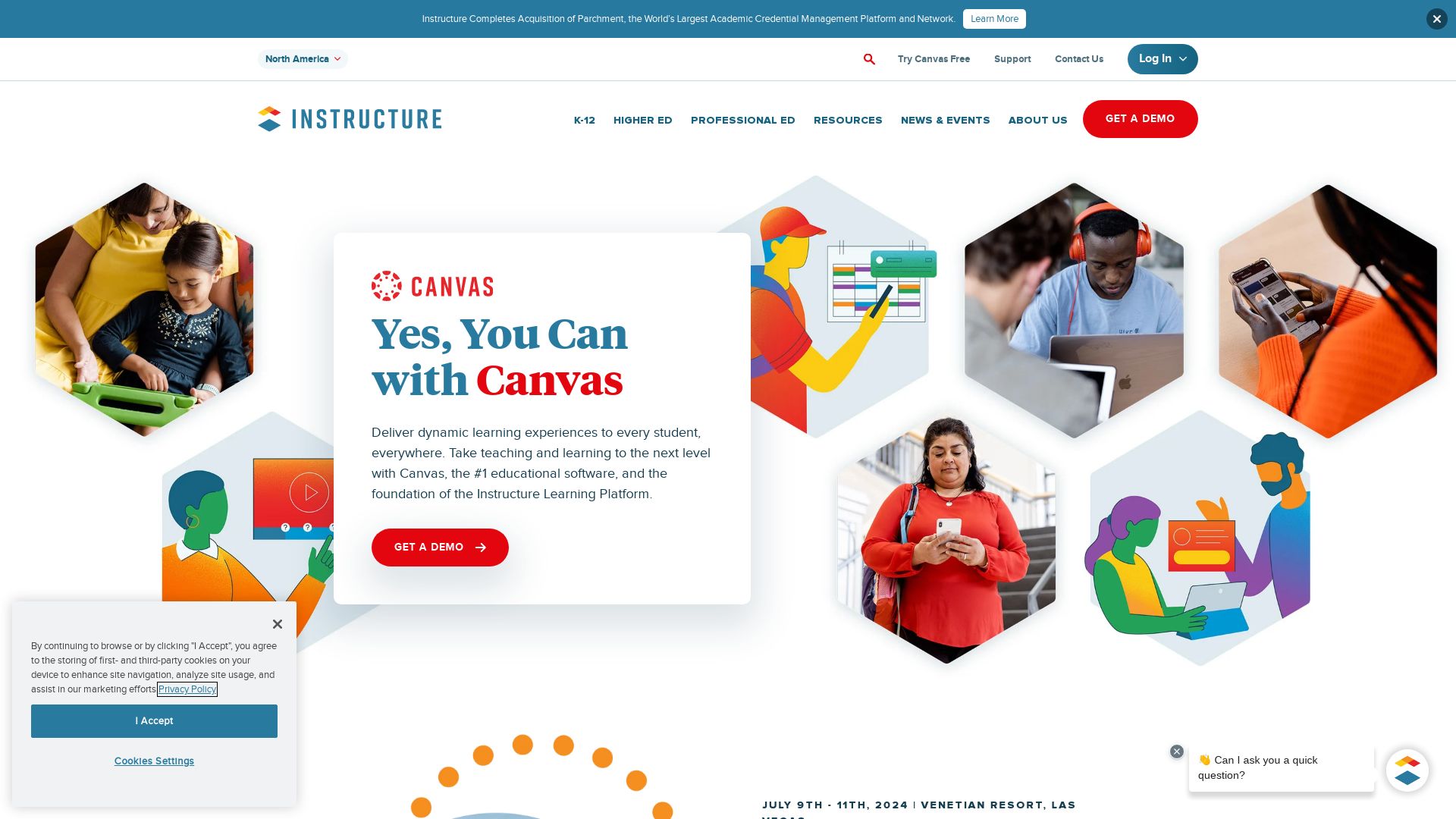
An agile solution for creating interactive and dynamic graphics, Canvas, turns HTML into a playground for visual creativity. Besides allowing multiple canvases on a single HTML page, all graphics are dynamically created via JavaScript.
Canvas Top Features
- Fine details of graphical representations using HTML5 Canvas API.
- Interactivity and gameplay elements for a more engaging user experience.
- RenderingContext which efficiently dresses an initially blank canvas.
- Extensive path features for comprehensive graphic designing.
- Enhanced drawing styles featuring lineCap, textAlign, font, among others.
| Transformations | Canvas leverages transformation matrix, manipulating designs to the user’s desires. |
| Gradients and Patterns | CanvasGradient objects provide a finer command over aesthetic properties of designs. |
| Direct Pixel Manipulation | Canvas allows direct pixel manipulation for detailed designs. |
Canvas Limitations
- ExplorerCanvas script needed for IE8 to support Canvas.
- All graphics need to be personally drawn with scripts.
Canvas Use Cases
HTML5 Developers
Canvas empowers HTML5 developers to construct interactive web experiences, ranging from professional graphics to interactive games.
Data Analysts
Data Analysts can materialize data into intensive graphical representations ensuring effective communication of data.
Game Designers
Canvas opens new horizons for game designers with its rich set of graphics functionalities, capable of creating interactive games.
Moodle
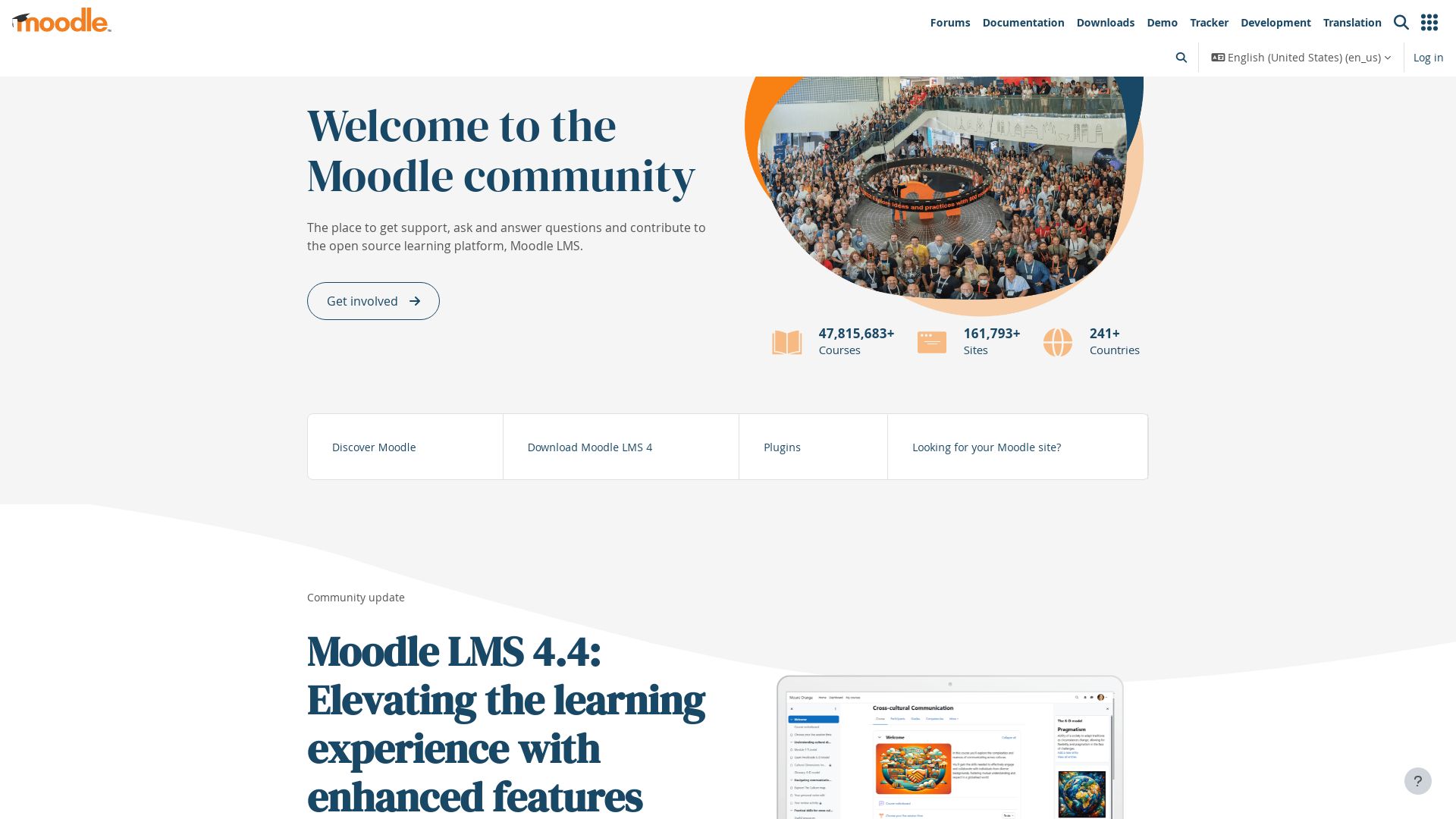
Moodle is a robust, learner-centric platform for educators, administrators, and learners. It is open source software and financially supported by over 80 partner service companies globally, making it a viable choice for seamless, integrated e-learning.
Moodle’s Top Features
- Open Source & Flexible: Moodle operates under the GNU General Public License, meaning no licensing fees.
- Multi-lingual support: Over 120 languages are supported, making it ideal for diverse learners.
- Seamless Integration: Fully integrated with collaborative tools like forums, wikis, chats and blogs while also having the capability to integrate with API, BigBlueButton, Dropbox, G Suite, Office 365 and more.
- Customizable: Suited to any teaching style, Moodle is adaptable to both blended learning and 100% online courses.
- Data Security: User privacy is at the heart of Moodle’s approach to e-learning platforms.
| Scalability | WCAG 2.1 Aligned | Active User Community |
|---|---|---|
| Used in education, business, non-profits, government and communities | Inclusive design, tailored for maximum accessibility | International community of users and developers providing regular bug fixes and new releases every six months |
Moodle’s Limitations
- Complex Setup: Novice users may struggle initially with the setup and customization process
- Limited Design: Aesthetics may not be its strongest suit compared to newer platforms
Moodle Pricing
With its open-source format, Moodle is free to use. It puts the emphasis on accessibility and affordability in online learning.
Moodle Use Cases
Use case 1: Businesses
Moodle is a cost-efficient solution for businesses looking to streamline their training programs. It can be easily adapted to different training methodologies.
Use case 2: Educational Institutions
From K-12 schools to college universities, Moodle facilitates collaborative online learning, proven by organizations like London School of Economics and State University of New York.
Use case 3: Non-Profit Organizations
Moodle’s multilingual capability and data security features make it an ideal platform for non-profit organizations reaching out to diverse communities.
Schoology
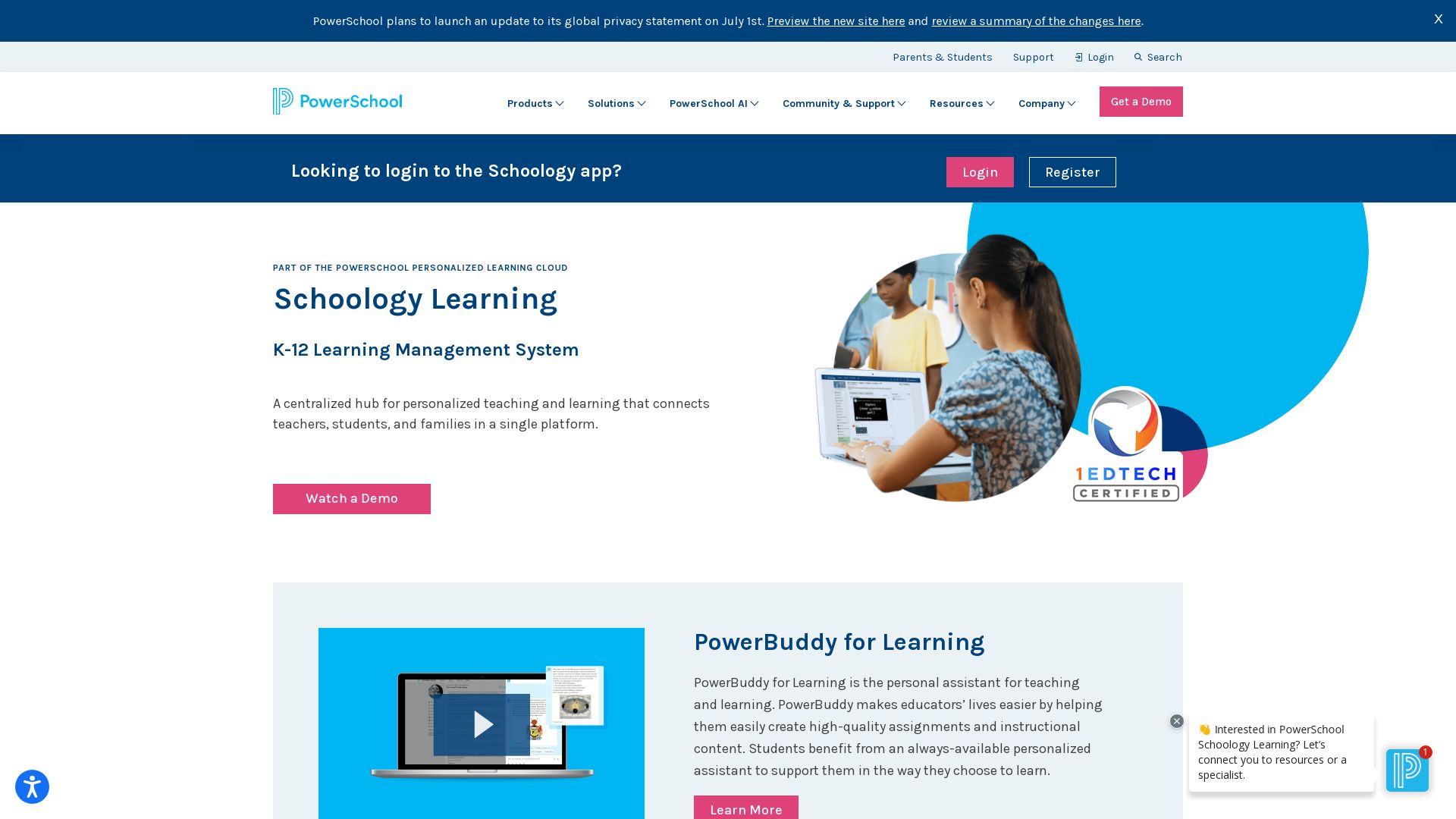
Illuminate your technological journey with Schoology, a remarkable cloud-based alternative, specializing in curriculum management, collaboration, and course instruction encapsulating both online and offline learning mediums.
Best Features of Schoology
- Accommodates dynamic content creation tools along with a rich text editor for crafting content and lessons
- Embeds edtech tools into assignments via LTI integration
- Enhanced grading and assessment tools built-in
- Adaptable with web-based and native apps for iOS, Android, Kindle
- Offers a flexible course content rearrangement feature with a drag-and-drop system
- Convenient Google and Microsoft integration allows access to Google Drive and Microsoft OneDrive resources
| Features | Benefits |
|---|---|
| Schoology AMP (Assessment Management Platform) | Manage assessments through the LMS |
| Third-party integrations | Wide-scale interoperability with current LMS |
| Granular role creation | Customizable user experience and personalized instruction |
Schoology Disadvantages
- Reported interface issues such as glitchy notifications, difficult page navigation, and malfunctioning features
- Some reported UI idiosyncrasies and additional charges for premium features
- Learning curve for effective usage due to robust functionalities
Schoology Pricing
Pricing informs the nexus of user count, required features, and institution size, effectively making it accessible to a diverse set of needs.
Schoology Use Cases
Use case 1: K-12 Schools
With its dynamic content creation, one-to-one support, and offline-online learning blend, Schoology caters exceptionally to K-12 educational environments, strengthening engagement and enhancing student-teacher interactions
Use case 2: Higher Education
Decoding the complexities of higher education, Schoology empowers with robust features simplifying task/assessment design, curriculum creations, and providing an interoperable platform.
Use case 3: Corporate Environments
Schoology transcends institutional boundaries by catering effectively to corporate training needs, elevating skill extension, content scaffolding, and time management.
Blackboard
Blackboard, known as one of the pioneers in Learning Management System (LMS) software, embarked on its journey as a small startup and underwent transmogrification to a multinational edtech corporation. With its legacy dating back to 1997, it has ceaselessly strived to digitize the traditional education paradigm.
Blackboard’s Top Features
- Customizable architecture: Blackboard allows flexibility and personalization to align with unique course objectives.
- Scalable design: Adaptability to accommodate varying student volumes, making it viable for institutions of diverse scales.
- Integration of student information systems and authentication protocols: To ensure student privacy and data security.
- Hosting options: Local, via Blackboard ASP Solutions, or as SaaS on Amazon Web Services.
- An array of product suite: Include Collaborate Ultra, Blackboard Ally, and chatbot support service.
| Features | Benefit |
|---|---|
| Efficient Grade Recording | Offers streamlined tracking and management of student performance |
| Assignment Plagiarism Checking | Safeguard academic integrity with advanced plagiarism detection. |
| Strong Communication Tools | Foster collaborative learning environment with interactive messaging and discussion forums. |
Blackboard’s Limitations
- Perceived as not intuitive due to a steep learning curve.
- Browser compatibility issues: Reported quirks with particular browsers affecting user experience.
- Bugs and frequent freezes: Spike in reported technical glitches impacting usability.
Blackboard Use Cases
Educational Institutions
Blackboard’s comprehensive features facilitate course delivery and management for educational institutions, whether offering traditionally delivered courses or fully online modules.
Corporate Training
Useful for corporate training purposes to manage and track employee learning and development programs.
Continuing Education
Offers dynamic support for continuing education initiatives for learners seeking to develop new skills or knowledge remotely.
Thinkific
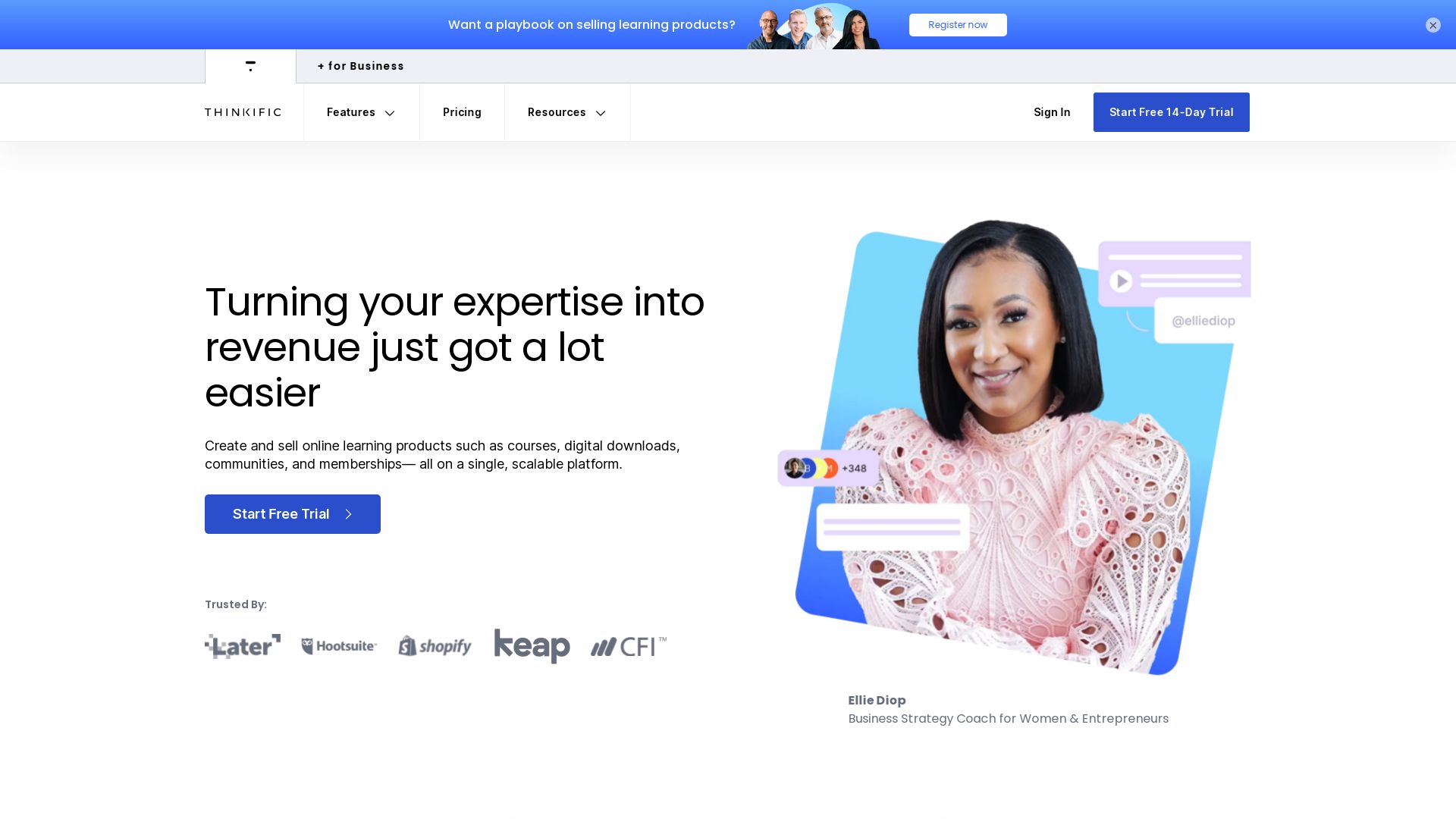
An all-in-one online learning platform for employees, Thinkific Plus is a modern substitute to legacy LMS, offering flexibility, quick delivery, and efficiency.
Thinkific Top Features
- Easy course creation with drag-and-drop builder, course templates, and bulk content import.
- Supports blended learning with multimedia lessons, webinars, and communities.
- Empowers custom-branded educational mobile app for enhanced mobile learning.
- Offers live course preview facility unlike some competitors such as Teachable.
- Customization, certificates upon completion, and efficient tools for selling courses.
- Integration with third-party marketing tools including Google Analytics, PayPal, and MailChimp.
| Feature | Description |
|---|---|
| Secure Hosting | Offers secure hosting features with an SSL certificate. |
| E-commerce Tools | Comprehensive tools for e-commerce and several third-party integration options for payment. |
| Pricing flexibility | Offers varied pricing options to cater to different budgets. |
Thinkific Limitations
- Limited options for testimonials layouts on sales and landing pages.
- Require technical and time resources for setup process.
- Challenges with adapting training styles for online platforms and accommodating varied learning styles.
Thinkific Pricing
Thinkific charges from $39 to $499 per month, depending upon the plan. The basic plan starts at $49/month.
Thinkific Use Cases
Corporate Training
Thinkific is suitable for employee training in large to mid-level companies due to its high scalability and flexibility.
Freelancers and consultants
Freelancers and consultants can use Thinkific’s intuitive interface and templates to create and sell their courses efficiently.
Online Education
In the realm of online education, Thinkific can be used to create, sell, manage and track courses, complete with hosting capabilities.
Tiffany Brise
Content writer @ Aircada, patiently awaiting a consumer AR headset that doesn’t suck.




